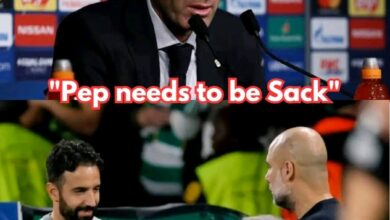Out of form for Tottenham and overlooked again by England, the £45m man has been usurped by younger star and he’s running out of chances to fulfil his potential

Ange Postecoglou, the esteemed manager and head coach of Tottenham Hotspur, has made considerable waves in the Premier League with his management style and strategic decisions. One area of particular scrutiny has been his handling of James Maddison, a player whose performance and utilization have sparked significant debate among pundits and fans alike. This analysis seeks to delve deeply into the nuances of Postecoglou’s decisions regarding Maddison, exploring the implications for both the player and the team, and examining the broader context of these choices within the framework of Tottenham Hotspur’s ongoing campaign.
James Maddison’s transfer to Tottenham Hotspur from Leicester City was met with high expectations and optimism from the Spurs’ fan base. The acquisition was viewed as a strategic move to enhance Tottenham’s midfield and provide a creative spark that the team had been sorely missing. The excitement surrounding Maddison’s arrival was palpable, given his impressive performances with Leicester and his potential to become a key player for Spurs.
At the outset of the season, Maddison’s impact was indeed substantial. His contributions were instrumental in Tottenham’s early successes, which saw the team ascending to the top of the Premier League table. Under Postecoglou’s management, the initial signs were promising, and the team appeared to be in a favorable position to achieve their ambitious goals for the season.
However, this positive trajectory encountered a significant setback following a crucial match against Chelsea. In this game, Maddison, along with teammate Micky van de Ven, sustained injuries that would profoundly affect the team’s fortunes. The defeat to Chelsea marked the beginning of a challenging period for Tottenham, with the subsequent injuries derailing the team’s momentum.
Upon returning from injury, James Maddison struggled to regain his previous form. This dip in performance was evident and coincided with a broader decline in Tottenham’s overall performance. As the season progressed, Maddison found himself increasingly sidelined, both in terms of his place in the starting lineup and in terms of his contributions on the field.
Ange Postecoglou’s decision to frequently substitute Maddison has been a topic of considerable debate. To date, Maddison has been substituted in every Premier League match of the current season, a pattern that has drawn criticism and bewilderment from various quarters. Prominent football analysts, including Jeff Stelling and Ally McCoist, have voiced their concerns and frustrations regarding this tactical choice.
Jeff Stelling, a respected sports presenter, has repeatedly questioned Postecoglou’s reasoning behind the recurrent substitutions of Maddison. After Tottenham’s defeat to Newcastle United, Stelling’s critique was particularly pointed. He remarked on the seemingly inexplicable nature of the decisions, highlighting that despite Spurs’ dominant performance in certain matches, the frequent substitution of Maddison seemed to undermine the team’s chances of capitalizing on their dominance.
Ally McCoist, a former footballer and pundit, echoed Stelling’s sentiments, describing the repeated substitutions as “really strange.” McCoist’s observations suggest that Postecoglou’s approach may not align with conventional managerial practices, raising questions about the strategic rationale behind the decisions
James Maddison’s frequent removal from matches not only affects his individual performance but also has broader implications for Tottenham Hotspur’s overall strategy. Maddison, known for his creative playmaking and ability to influence games, is a vital asset for Spurs. His removal from matches, particularly in crucial moments, may disrupt the team’s rhythm and effectiveness.
Furthermore, Maddison’s ongoing struggle to secure a consistent place in the starting lineup and his subsequent exclusion from England’s Euro 2024 squad highlight the potential repercussions of these managerial decisions. The transition from Gareth Southgate’s tenure to Lee Carsley’s interim management has introduced a new dynamic to the England setup. Maddison’s absence from the squad underlines the impact of his current form and utilization at the club level on his international prospects.
The potential consequences for Maddison’s international career cannot be understated. If he continues to be sidelined or inadequately utilized, there is a risk that his chances of securing a spot in the England squad may diminish further. This scenario could represent a significant setback for a player who has previously experienced challenges in securing consistent international recognition.
The broader strategic implications of Postecoglou’s decisions also warrant consideration. Managerial decisions regarding player substitutions and rotations are inherently linked to broader tactical and strategic objectives. Postecoglou’s approach may be driven by a range of factors, including tactical adjustments, player fitness considerations, and the broader goals for the season.
However, the frequency of Maddison’s substitutions raises questions about the effectiveness and coherence of Postecoglou’s strategy. The ability to maintain a stable and consistent lineup is often crucial for team cohesion and performance. Frequent disruptions to key players’ involvement can potentially hinder the team’s ability to establish a rhythm and execute tactical plans effectively.
Ange Postecoglou’s handling of James Maddison has sparked significant debate and analysis within the football community. While Postecoglou’s decisions may be informed by various tactical and strategic considerations, the recurrent substitutions of Maddison have drawn criticism from pundits and observers. The implications for both the player and Tottenham Hotspur’s broader season objectives are considerable.
As Tottenham Hotspur navigates the remainder of the season, it will be crucial for Postecoglou to balance tactical experimentation with the need for stability and consistency. For James Maddison, regaining form and securing a prominent role within the team will be essential for both his individual success and his prospects on the international stage. The evolving dynamics of the season will provide further insights into the effectiveness of Postecoglou’s managerial approach and its impact on the team’s performance and objectives.















